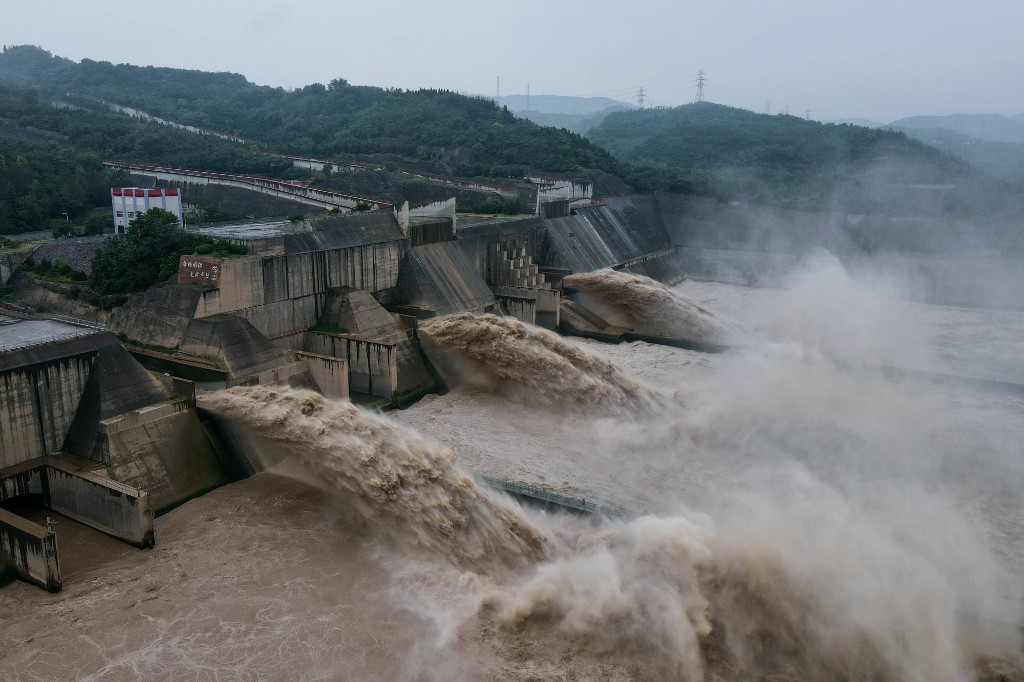(ATF) China’s central government has announced an additional 2 trillion yuan (US$286.2 billion) of direct “grassroots funding” – to deal with the coronavirus, natural disasters and other problems, such as likely impending food shortages.
The Ministry of Finance issued a document to strengthen supervision of this funding. This is to supplement special treasury bonds and a deficit allowance already in place. Instead of issuing more treasury bonds, as earlier foreseen, the ministry will directly transfer funds to people in struggling areas directly.
There was no mention of why bonds were not issued, but instead a strict set of measures for the handling of these funds. It is possible the huge scale of the flood crisis requires that funds be dispersed quickly.
Wang Kebing, a first-level inspector of the ministry’s Budget Department said recently that the ministry had drawn up a series of supervisory measures to make sure the funds were allocated correctly. The Ministry of Finance website had yet to publish these “Supervision measures” at the time of writing. However, Xiaoxiang Morning News and China Business News learned from local financial officials that the measures were issued to local governments in mid-June.
The central government has given strong financial support to local governments in a bid to implement its “six guarantees” – a recent slogan used by the Party promising normal standards of living will remain. This includes a new deficit allowance of 1 trillion yuan and the issuance of anti-epidemic special treasury bonds to raise a total of 1 trillion yuan and a further 2 trillion yuan through these new special transfer payments.
The ministry set up a ‘special mechanism’ to send funds directly to ‘grassroots governments’ for struggling enterprises and people in need, local media have reported.
According to the Supervision Measures, the direct funds include but are not limited to the above 2 trillion yuan. This means that the scale of direct funds will actually exceed 2 trillion yuan, and some of the funds issued by the central government have also been included in direct funds and are subject to supervision.
Some funds already sent need to be re-allocated. For example, in a “Notice on Issuing the Budget for Reward and Subsidy Funds for the County-level Basic Financial Guarantee Mechanism in 2020” published by the ministry on Monday July 20, the total amount of local funds and subsidies issued at this time is 13.5 billion yuan, but the total amount of direct funds under supervision is 27 billion yuan. Since the amount issued this time is less than the direct fund quota, the ministry has told local governments to adjust some of the funds previously issued.
Secret marking of funds
The core issue lies in the ministry’s newly established central finance fund monitoring system, which will supervise this direct funding of more than 2 trillion yuan from the central government.
According to the regulations, the ministry has established a fund monitoring system to ensure that the data is true, accounts are clear, and the direction of flow is clear through the monitoring of separate distribution and separate identification of direct funds.
The system is complicated with a bit of cloak and dagger, especially secretly ‘marking’ of funds and tracking to ensure they remain in the right hands from dispatch to use.
That is to say, the enterprises and personnel in difficulty need to establish real-name accounts, and distribute funds directly to beneficiaries in accordance with provisions of the central treasury payment system.
A fiscal and taxation expert told China Business News that the direct disbursement of funds from the national treasury to beneficiaries could stop funds being intercepted, and allow enterprises and personnel in difficulty to get the “lifesaving money” as soon as possible. The real-name system is also convenient for future supervision.
The Ministry of Finance requires financial departments at all levels to strengthen the supervision of direct funds.
The Supervision Measures require that provincial financial departments strictly prohibit embezzlement of direct funds, and it is strictly forbidden to use alternative methods to recover funds.
In addition, the ministry will also strengthen collaboration with the audit department and the People’s Bank of China to form a combined supervisory force. At present, the National Audit Office has launched a special audit of direct funds to achieve full coverage of data analysis and full coverage of on-site audits, and promote improvement of the entire audit process.
























